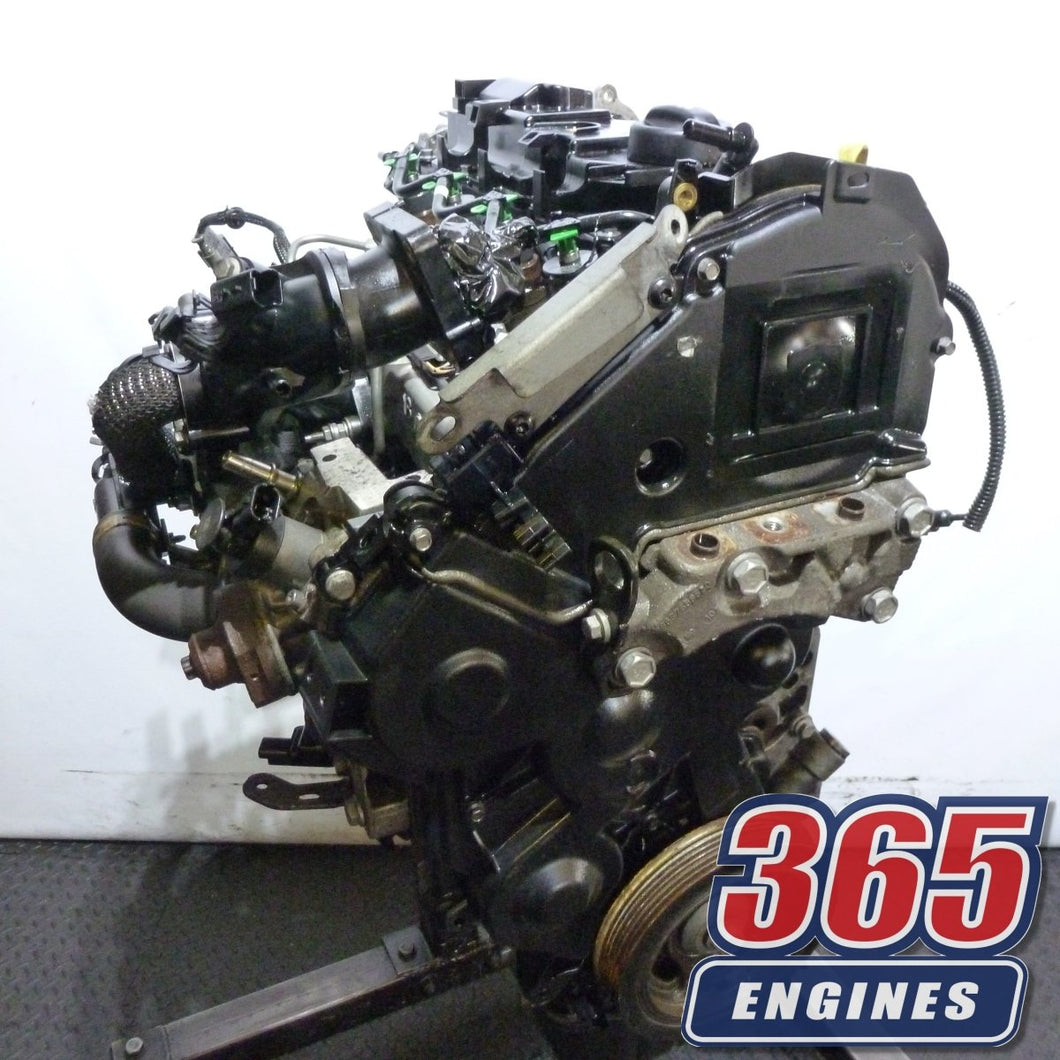Common Issues with the Ford Fiesta Engine and How to Fix Them
Common Issues with the Ford Fiesta Engine and How to Fix Them
Blog Article
Unlocking the Power of Engines: A Comprehensive Overview to Performance and Effectiveness
Recognizing the intricate mechanics of engines is essential for both performance lovers and day-to-day vehicle drivers. The responses may redefine our technique to engine performance and efficiency in means that are both informing and important.
Recognizing Engine Fundamentals
What makes up the essential mechanics of an engine? At its core, an engine is a machine made to transform fuel right into mechanical power through a collection of regulated surges or burning processes.
The crankshaft after that changes this linear activity right into rotational energy, which inevitably powers the automobile. The camshaft controls the opening and closing of the shutoffs, controling the intake of air and gas and the expulsion of exhaust gases. Furthermore, the engine relies on a carefully adjusted fuel-air mix, ignition system, and cooling down system to make sure optimal efficiency and effectiveness.
Understanding engine fundamentals also entails recognizing the value of engine cycles, such as the four-stroke cycle, which includes consumption, power, exhaust, and compression strokes. Each stage is vital in making sure the engine functions smoothly and properly. Mastery of these basic mechanics lays the foundation for exploring more complicated engine characteristics and efficiency metrics, vital for optimizing both power outcome and performance.
Secret Efficiency Metrics
Trick performance metrics are necessary for evaluating an engine's effectiveness and power result, providing useful understandings for both customers and suppliers. These metrics function as benchmarks for engine performance, enabling educated decisions in layout, purchasing, and manufacturing.
Among the key metrics is horse power, which evaluates the engine's capacity to perform work over time. Torque, measured in pound-feet, is another important metric that suggests the engine's rotational pressure, straight influencing acceleration and towing ability. Fuel efficiency, usually determined in miles per gallon (MPG) or liters per 100 kilometers (L/100km), assesses how effectively the engine transforms gas right into movement, impacting operational prices and ecological factors to consider.
In addition, thermal effectiveness procedures exactly how well an engine converts gas power right into beneficial work, revealing insights right into power losses largely via warmth. Discharge levels, including carbon dioxide and NOx, are likewise vital, showing the engine's environmental effect and conformity with regulative standards.

Tuning Strategies for Performance
Tuning techniques play a significant function in improving engine effectiveness by maximizing efficiency metrics recognized in earlier conversations (ford fiesta engine). Numerous approaches exist to fine-tune an engine, each adding to improved gas economy and decreased discharges
One efficient method is changing the air-fuel ratio, making sure the engine operates within the ideal combustion program. A leaner mix can improve fuel efficiency, but it must be stabilized to stop misfires or engine knock. In addition, reprogramming the engine monitoring system can alter specifications such as ignition timing, which additionally enhances effectiveness while maintaining Visit Website power result.
One more crucial method involves changing the consumption and exhaust systems. Upgrading to high-performance air filters and exhaust headers can decrease back stress, promoting much better air flow. This allows the engine to take a breath more freely, bring about improved combustion performance.
Moreover, the application of advanced adjusting tools, like dyno screening, supplies accurate information that allows targeted adjustments. Frequently keeping track of these performance metrics makes certain that tuning initiatives generate the wanted effectiveness outcomes. Jointly, these methods not just reinforce engine efficiency however additionally add to lasting sustainability in engine procedures.
Upkeep for Optimum Performance
Regular engine maintenance is crucial for achieving ideal performance click over here now and longevity. A properly maintained engine not just operates successfully but additionally minimizes the threat of costly repair services and breakdowns. Secret parts requiring routine focus include oil, filters, belts, and ignition system.
Changing the engine oil at suggested periods is critical, as oil lubes relocating components and avoids getting too hot. Similarly, replacing oil and air filters makes sure that impurities do not impair engine function. Ignoring these parts can lead to decreased effectiveness and possible engine damages.
In addition, evaluating and replacing worn belts and hose pipes is crucial to stop sudden failures. Timing belts, in particular, ought to be replaced according to the maker's routine to stay clear of tragic engine damages.
Glow plugs ought to likewise be inspected and replaced as required, because they play a critical duty in ignition and gas performance.
Future Fads in Engine Modern Technology
Welcoming improvements in innovation, the future of engine layout is poised to change performance and efficiency throughout numerous applications. Crossbreed and fully electrical powertrains are ending up being increasingly conventional, using decreased exhausts and improved gas performance.
Furthermore, innovations in products science are bring about lighter, stronger parts that enhance engine efficiency while decreasing power consumption. Advanced production techniques, such as 3D printing, enable the creation of complicated geometries that improve air flow and thermal monitoring, thus maximizing combustion procedures.
Additionally, the combination of expert system and artificial intelligence is readied to transform engine diagnostics and performance adjusting. These technologies can examine substantial amounts of data in actual time, enabling predictive upkeep and tailored performance improvements.
Verdict
In verdict, opening the power of engines calls for a detailed understanding of their mechanics and efficiency metrics. Applying reliable adjusting methods and sticking to normal maintenance methods considerably enhance engine capabilities.
In addition, the engine depends on a meticulously calibrated fuel-air browse this site mix, ignition system, and cooling down system to make certain ideal performance and performance.
Comprehending engine basics additionally includes recognizing the value of engine cycles, such as the four-stroke cycle, which consists of intake, compression, exhaust, and power strokes. Proficiency of these essential technicians lays the groundwork for exploring a lot more complex engine characteristics and performance metrics, crucial for enhancing both power result and effectiveness.

Embracing developments in technology, the future of engine design is poised to transform performance and efficiency across various applications.
Report this page